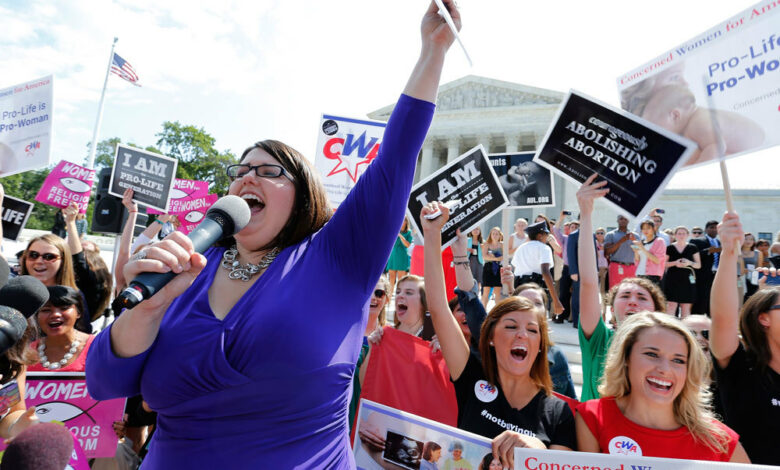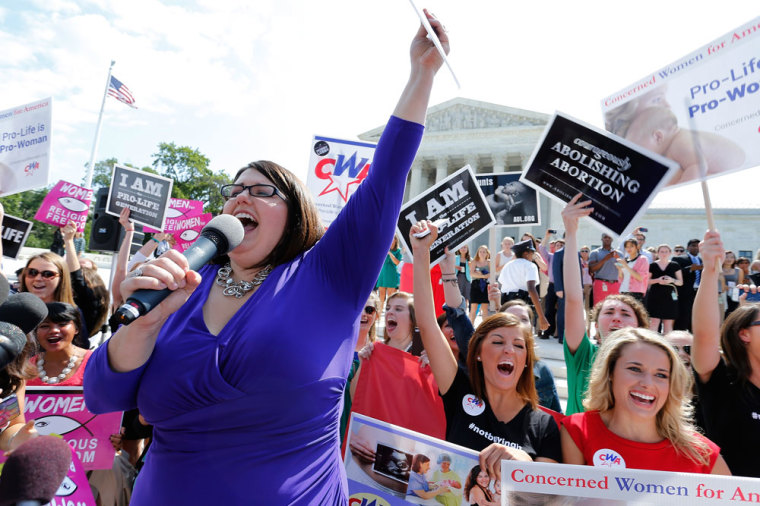Christian university accused of stonewalling pro-life group


An Indiana-based Christian university is facing allegations that it has stonewalled the approval process for a pro-life campus student group, while the institution claims the group hasn’t completed the approval process.
The legal counsel for Students for Life of America, Zachary Kester, sent the letter to Huntington University President Sherilyn Emberton and Vice President for Student Life Ron Coffey last Monday.
Caroline Wharton, press strategist and staff writer for SFLA, provided The Christian Post with a copy of the demand letter on Monday. According to Wharton, Monday was the deadline for the school to respond to SFLA’s letter.
“If this deadline is not met, our students and legal counsel will agree upon our next move,” she wrote.
Wharton confirmed to CP in a Tuesday statement that the school reached out to SFLA’s legal counsel and agreed to discuss the matter. Further updates are pending.
Huntington University is a four-year liberal arts school affiliated with the Church of the United Brethren in Christ. As of October 2022, around 1,200 students were enrolled to take classes on the university’s Huntington campus.
The student at the center of the controversy, Ryan Drenovsky, reached out to the administration at HU in January 2023 to propose the creation of the Huntington University Students for Life Club.
Drenovsky assured the administrators in his initial email that the HUSFL aligned with the university’s Christian values and that it was not intended to cater to one side of the political spectrum.
“Indeed, Mr. Drenovsky sought to form a club for likeminded Christians to care for women that are struggling with a monumental decision, to help point them towards choosing life, and ultimately to help point them towards Christ,” the letter stated.
The demand letter pointed out HU’s mission statement on its website, which affirms the school’s commitment as a Christian school to preparing students for the “contemporary world” instead of sheltering them from it.
Kester argues that the university is not abiding by its mission to allow differing viewpoints if it does not approve of the pro-life group.
“We would call on the University’s administration to live by their own mission and allow the formation of HUSFL so that they may engage in discourse on campus, carry out the University’s goals of fostering critical thinking, and live out Christ’s mission,” Kester’s letter continued.
In a Monday statement to CP, an HU spokesperson affirmed the university’s commitment to their Creator, emphasizing that the school has a history of encouraging students to pursue their vocation through on-campus organizations.
“The University has a process for approving school-sponsored clubs which involves multiple levels of authorization and communication,” the spokesperson wrote.
“The approval process for the proposed club in question had not been completed as of the end of the spring semester. The University has not denied permission for the proposed club to continue in the process to seek approval.”
“The University looks forward to engaging with the student in the upcoming fall semester and will assist in navigating the application process for the proposed student-led group,” the HU spokesperson continued.
In a blog post, Students for Life explains that the “process for approving a university sponsored club at HU is supposed to take no longer than a month and a half,” and Drenovsky was expecting to receive approval sometime in February. However, the spring semester came to an end without formal approval. Drenovsky believes his request was ignored by the administration.
Kester said that Drenovsky provided a draft of his club’s constitution to Sarah Rickerd in the Office of Student Life on Jan. 17. The university’s club formation policies state that this is the first step, according to the letter. Two days later, Drenovsky informed Rickerd that he had completed the second step in the club formation process by securing a club sponsor.
“Some correspondence via email continued throughout January, February, March, and April of this year, regarding HUSFL’s formation. Mr. Drenovsky was finally able to meet in-person with [Vice President of Student Life Ron Coffey] on March 28, more than two months after providing HUSFL’s constitution to administration and securing a staff sponsor,” the demand letter outlined.
During the March meeting, Coffey reportedly expressed displeasure with SFLA’s involvement with the campus group, which the letter noted only extends to legal support and associated support.
Other campus groups that the letter highlighted, including Fellowship of Christian Athletes, Student Occupational Therapy Association, Indiana Collegiate Farm Bureau, Circle K (Kiwanis) and Love Your Melon, have statewide or nationwide affiliations.
The student then provided the school with an updated constitution for the club in March, stressing that the group is not affiliated with any specific political party, but added that it had connections with various pro-life non-profits to “help facilitate some activities.”
The letter cited multiple instances in April and May where Coffey reportedly informed Drenovsky that he would approve the pro-life club.
“Mr. Drenovsky sent several emails requesting the status for approval in that time period, but no action occurred,” SFLA’s legal counsel wrote. “The University has refused to provide a reason for the delay.”
Samantha Kamman is a reporter for The Christian Post. She can be reached at: [email protected]. Follow her on Twitter: @Samantha_Kamman
Free Religious Freedom Updates
Join thousands of others to get the FREEDOM POST newsletter for free, sent twice a week from The Christian Post.




